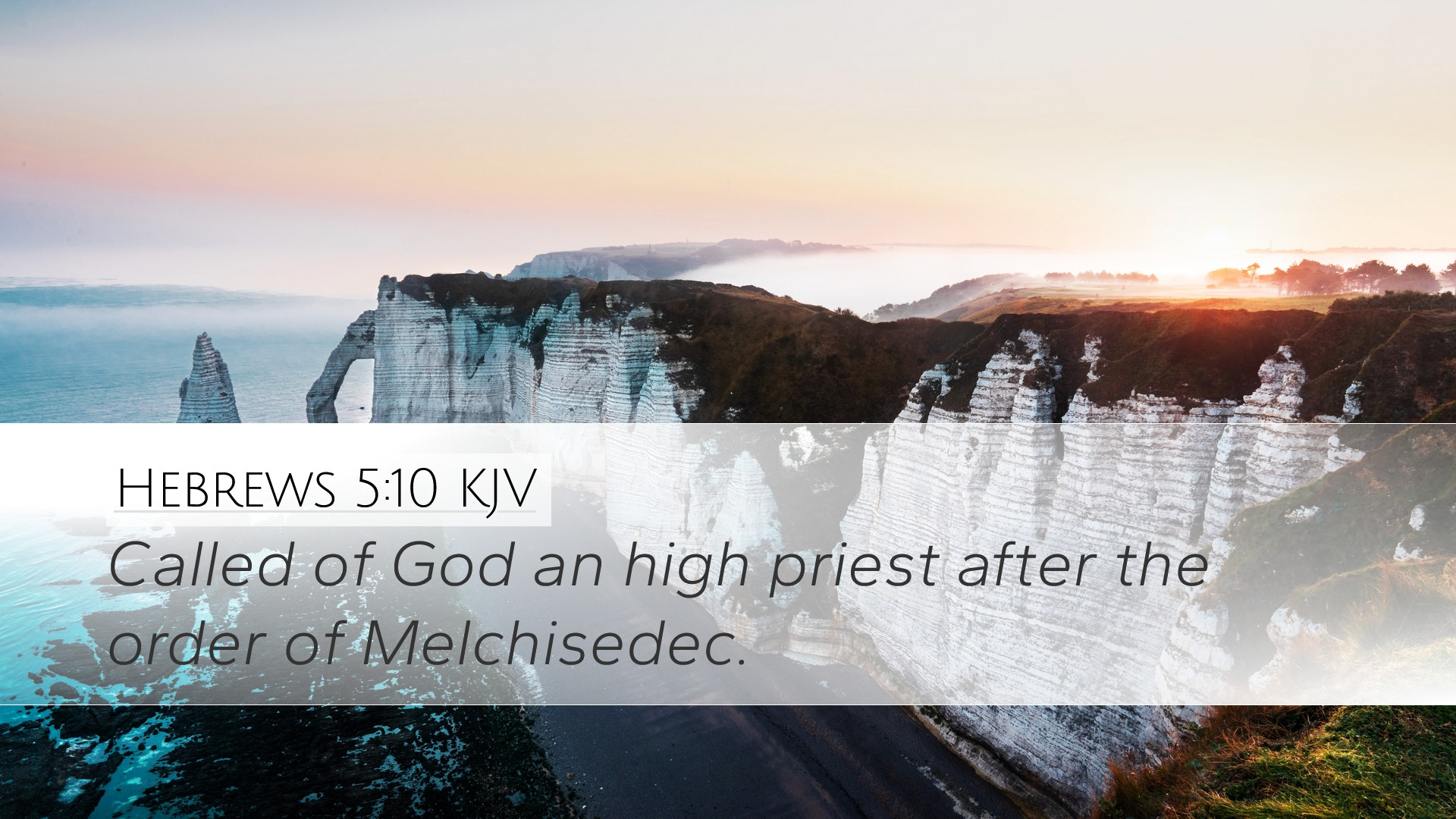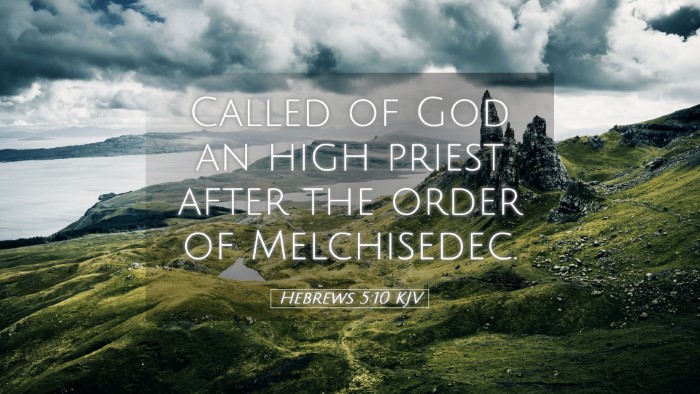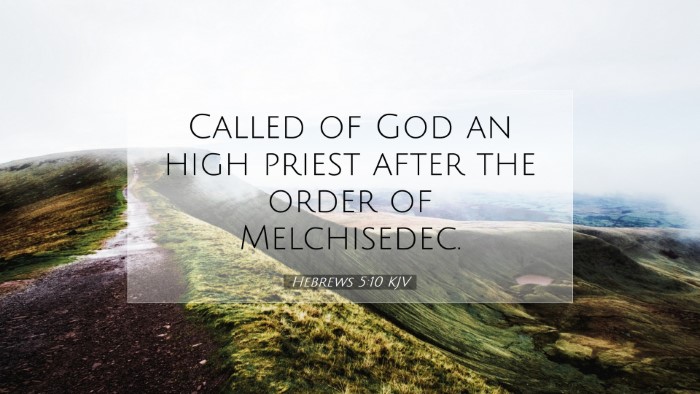Old Testament
Genesis Exodus Leviticus Numbers Deuteronomy Joshua Judges Ruth 1 Samuel 2 Samuel 1 Kings 2 Kings 1 Chronicles 2 Chronicles Ezra Nehemiah Esther Job Psalms Proverbs Ecclesiastes Song of Solomon Isaiah Jeremiah Lamentations Ezekiel Daniel Hosea Joel Amos Obadiah Jonah Micah Nahum Habakkuk Zephaniah Haggai Zechariah MalachiHebrews 5:10
Hebrews 5:10 KJV
Called of God an high priest after the order of Melchisedec.
Hebrews 5:10 Bible Commentary
Commentary on Hebrews 5:10
Hebrews 5:10 states, "Called of God an high priest after the order of Melchisedec." This verse plays a pivotal role in understanding the nature of Christ as our High Priest and its implications for the new covenant. Below is a summarization of insights derived from various public domain commentaries that have analyzed this verse.
Contextual Overview
The Book of Hebrews is characterized by its profound theological discourse, explaining the supremacy of Christ over the old covenant sacrificial system. In this context, Hebrews 5:10 signifies the unique priestly role of Jesus as belonging to the order of Melchizedek, setting aside the Levitical priesthood.
Significance of the Priesthood
Albert Barnes emphasizes that the priesthood in the Old Testament was integral to the Jewish faith, serving as mediators between God and man. However, the author of Hebrews presents Christ's priesthood as far superior, rooted in divine appointment rather than hereditary succession.
Melchizedek - A Typology
Matthew Henry notes that Melchizedek serves as a type or foreshadowing of Christ. His mysterious and royal priesthood—a king of Salem and priest of the Most High God—illustrates the nature of Christ's eternal priesthood. Melchizedek's lack of genealogy and recorded death indicates that Christ's priesthood is everlasting and unchangeable.
The Divine Calling
Adam Clarke explains the meaning of being “called of God.” This divine calling is crucial to understanding Jesus’ authority as High Priest. Unlike the Levitical priests who were established by the law, Christ’s priesthood is divinely ordained. This divine appointment highlights God's sovereignty and purpose in Christ's mission for humanity.
Theological Implications
- Christ’s Mediatorial Role: The verse underlines Christ’s unique role as the mediator of the new covenant, fulfilling the requirement of perfect sacrifice and intercession.
- Continuity and Fulfillment: The reference to Melchizedek signifies that the new covenant is a fulfillment of God’s promises, uniting both the priestly and kingly roles in Christ.
- Encouragement for Believers: The assurance of having such a High Priest encourages believers to approach the throne of grace with confidence, knowing they have an advocate who fully understands human struggles.
Exposition of the Order of Melchizedek
The order of Melchizedek is central to the author's argument in Hebrews. The juxtaposition of Jesus and Melchizedek signifies a radical shift in the understanding of priesthood and worship. Matthew Henry remarks, “Christ’s priesthood is not after the order of Aaron, who died and could not continue his ministry, but is a perpetual priesthood.”
Application to the Believer’s Life
The Christological implications of Hebrews 5:10 extend beyond theological understanding; they have crucial applications for Christian living:
- Intercession: Believers can be assured that Christ intercedes for them, providing comfort and hope amidst trials.
- Call to Spiritual Maturity: The high calling of Jesus as priest challenges believers to grow in faith, moving beyond elementary teachings towards spiritual maturity.
- Model of Servanthood: As Christ serves in His priestly role, believers are called to emulate His service to others, thus fulfilling their priestly functions in the world.
Conclusion
Hebrews 5:10 encapsulates profound truths about the nature of Christ and His work for humanity. By exploring the insights from public domain commentators, we gain a richer understanding of the significance of Christ’s priesthood after the order of Melchizedek—a truth that impacts our theology, worship, and daily Christian living. As we reflect on this verse, let us embrace our calling in light of Christ’s eternal and perfect priesthood.


